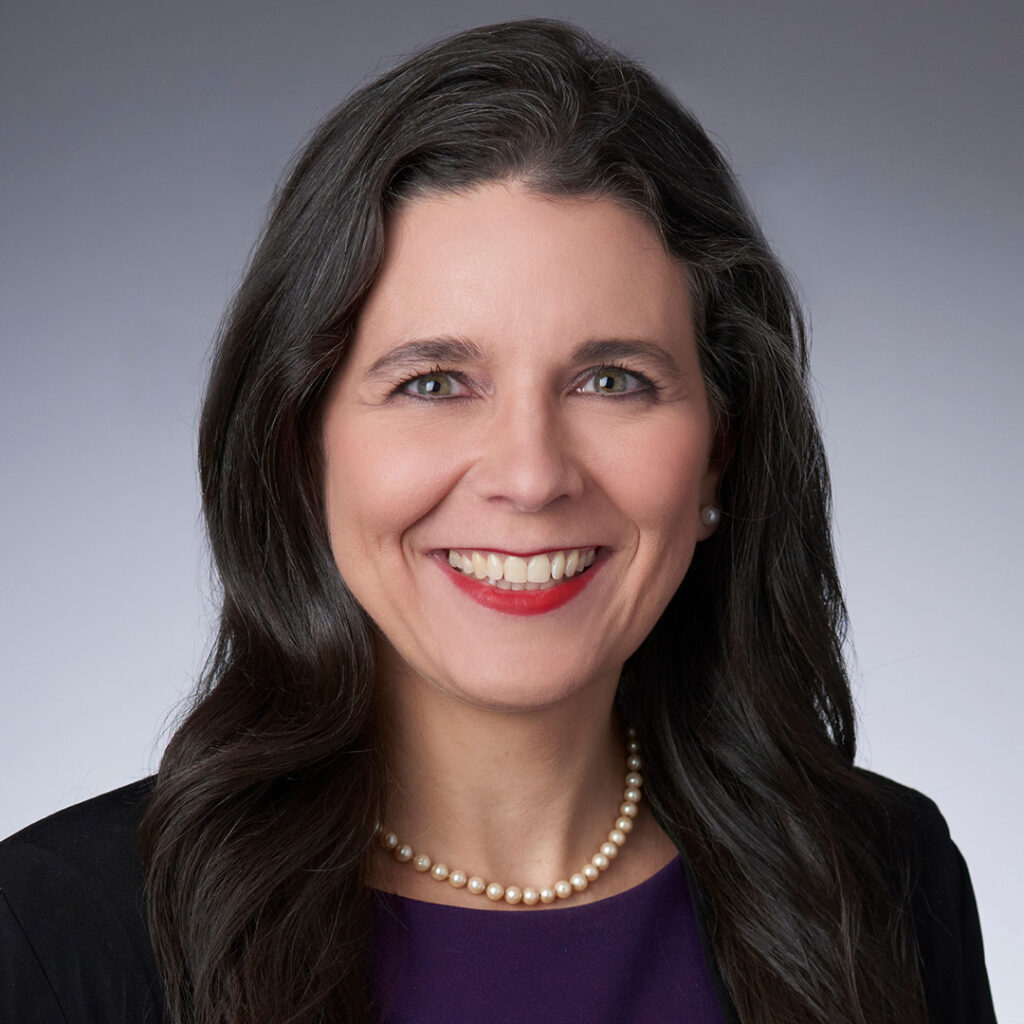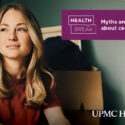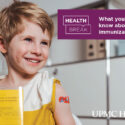Health Break: Caring for the mental health of kids and teens

A podcast for UPMC Health Plan members, Health Break is your quick guide to caring for your mental and physical health, prioritizing wellness, and making the most of your health insurance plan.
Episode 39: Take a Health Break with Dr. Johanna Vidal-Phelan
Dr. Johanna Vidal-Phelan takes a Health Break to explain mental and behavioral health for kids and teens.
Episode transcript:
Camille: Welcome to Health Break by UPMC Health Plan, your quick guide to health, wellness, and how to make the most of your health insurance plan. I’m your host, Dr. Camille Clarke-Smith. I help to oversee the quality of the plans and programs we offer at UPMC Health Plan.
Angelo: And I’m your co-host, Angelo Bartic. I’m a health coach who works with our members on making healthy lifestyle habits and setting goals. This is your…Health Break.
Hey everyone, it’s Angelo Bartic. Today we have with us Dr. Johanna Vidal-Phelan. We’re discussing behavioral and mental health in kids and teens and the ways caregivers can offer support. Dr. Vidal-Phelan, thank you so much for spending some time with us today.
Dr. Vidal-Phelan: Thank you so much for having me.
Angelo: When we talk about kids and teens, why is behavioral health important?
Dr. Vidal-Phelan: Just like in adults, the behavioral health needs of children and teens are important as they can also experience behavioral health conditions. According to the Center of Disease Control and Prevention, nearly one in five children have a mental, emotional, or behavioral health condition, such as anxiety or depression, attention deficit hyperactivity disorder like ADHD, or autism spectrum disorder. Parents and caregivers need to know that when a behavioral health diagnosis is identified in a child or a teenager, the sooner they are treated, the better the outcome. And remember, unlike an adult who can identify their own issues and get the necessary care, a child or teenager depends on a parent or caregiver to get help with their behavioral health needs. I would like to point out that children and teenagers may show different signs and symptoms when they’re stressed, anxious, or depressed based on their age or maturity. For example, a preschool child between the ages of 3 and 5 may present with signs like changing appetite, fear of being alone, new nightmares, bedwetting, or increased tantrums, whining, or clinging behaviors. A school-aged child between the ages of 6 and 12 may seem withdrawn from peers or experience sleep or appetite disturbances, complain of random physical symptoms like a belly pain or headaches, or may seem to have lost interest in things or activities they tend to enjoy in the past. Teenagers (that’s between the ages of 13 to 18 years) may also present with changes in appetite or sleep routine, agitation or decreased energy, isolation from family and friends, or a new physical symptom.
Angelo: So now that we know the signs, many people are thinking, how can we help? What resources does UPMC Health Plan offer to parents and caregivers to approach these challenges and opportunities?
Dr. Vidal-Phelan: Well, as parents, caregivers, and grandparents, we need to help. First, we can help by being patient and reassuring and by engaging intentionally with our children and teenagers. As a pediatrician, I need to emphasize how important sleep is for children and teenagers. Good quality sleep is an important component of your child’s well-being. I always encourage my patients to avoid excessive media use, especially prior to bedtime. Teenagers who are using their cell phones or are playing video games until late at night don’t have good quality or sufficient sleep. The cycle of going to bed late and then waking up early to school catches up with them and can impact their behavioral health. In addition, exercise and eating healthy well-balanced diet are important components to support your child’s well-being. Having meals together as a family helps you connect with one another after a long day at school or work. As parents and caregivers, family meals can help you interact with your child and teenager and pick up any changes in behavior that could be of concern. When a child or a teenager is worried, anxious, or sad, encourage them to reach out to you or another family member and/or their school counselor. As a parent or caregiver, you know your child and teenager best. And if you have questions or concerns, please reach out to your pediatrician or family doctor to discuss them and evaluate together next steps.
Angelo: What are some tools and resources that UPMC Health Plan has to offer members?
Dr. Vidal-Phelan: Angelo, I’m so glad to share with you some of the UPMC Health Plan resources available to help you and your family stay healthy. UPMC Health Plan has health coaches like Angelo that are incredible supporting families because they not only discuss exercise and nutrition, but they also care and provide holistic support that can meet spiritual, emotional, and physical needs of your child and family.
We also have a pediatric care management team, a dedicated team of social workers, pediatric nurses, and support staff that engages with our pediatric members, their parents, and caregivers.
Children age 16 and older can use our free RxWell app, which is designed to help members improve their mental and physical health using self-guided activities and support from a health coach. Parents can also use RxWell both for themselves, and to learn and share techniques and skills with their children. I am very excited for a new program called Healthy Families that is now available to families in the RxWell app. Healthy Families help families make healthy changes together, like eating more fruits than vegetables, getting enough sleep, reducing screen time, being active as a family, eating more family meals and drinking fewer sugary drinks.
And let’s not forget about our telehealth platform. First, UPMC AnywhereCare* allows members to have access to virtual counseling sessions for mental and behavioral health care. Another important telehealth service is UPMC Children’s AnywhereCare, which allows parents [and] caregivers of children ages 0 to 17 to have virtual visits 24/7 with world-class UPMC Children’s Hospital Pittsburgh physicians and providers over live video. Achieving physical and behavioral health well-being is a journey, and UPMC Health Plan is proud to partner with you to support your family’s goals and well-being.
Angelo: Thank you, Dr. Vidal-Phelan, for taking a Health Break with us, sharing your expertise and perspective and discussing behavioral and mental health in kids and teens in the ways parents and caregivers can offer support.
Dr. Vidal-Phelan: Thank you so much for having me.
Angelo: Get connected with these tools and resources to support the kids and teens in your life.
Find show notes and more information at upmchealthplan.com/podcast. Join us as we continue exploring health, wellness, and how to make the most of your health insurance plan in the next episode of Health Break.
This podcast is for informational and educational purposes. It is not medical care or advice. Individuals in need of medical care should consult their personal care provider. Views and opinions expressed by the hosts and guests are solely their own and do not necessarily reflect those of UPMC Health Plan and its employees.
Related to this episode:
- Pediatric health services
- Children’s mental health information from the CDC
- Adult behavioral health programs and services
- Download RxWell*
- Access UPMC AnywhereCare**
About Dr. Johanna Vidal-Phelan:
Johanna Vidal-Phelan, MD, MBA, FAAP, is the Chief Medical Officer, Quality Department for UPMC Insurance Services Division and Clinical Assistant Professor of Pediatrics at the University of Pittsburgh School of Medicine. Dr. Vidal-Phelan graduated with a bachelor’s degree in biology from Wellesley College and completed her Doctor of Medicine from UMDNJ-Robert Wood Johnson Medical School in New Jersey and was awarded the Sidney J. Sussman, MD Award for Academic Excellence in Pediatrics. She completed her General Pediatrics Internship and Residency at the University of Washington Seattle Children’s Hospital and a health care-focused master’s in business administration from George Washington University School of Business. Dr. Vidal-Phelan has over 20 years of experience in clinical practice and has been a thought leader in the field of value-based care, population health, care management and social determinants of health.
*RxWell is available to UPMC Health Plan members who are 14 years old or older.
**Members who are in Pennsylvania at the time of a virtual visit may select a UPMC-employed provider, subject to availability and discretion of the provider. Members located outside of Pennsylvania at the time of service or those who select Talk Therapy or Psychiatry services will receive care from a provider employed or contracted by Online Care Network II PC (OCN), also known as Amwell Medical Group. It is at the discretion of OCN providers to choose whether to treat patients ages 0 to 2. OCN is not an affiliate of UPMC. Limitations may apply for members of ASO plans who have opted out of coverage. Talk Therapy or Psychiatry services through AnywhereCare are not covered services for UPMC Community HealthChoices participants, UPMC for You members, or UPMC for Kids members. UPMC Children’s AnywhereCare is not available outside of Pennsylvania. If a member is under the age of 18, the member’s parent or legal guardian must be with the member during the video portion of the visit, and the child and parent or legal guardian must be in Pennsylvania during the visit. Providers are not available to treat members who are in Puerto Rico.




